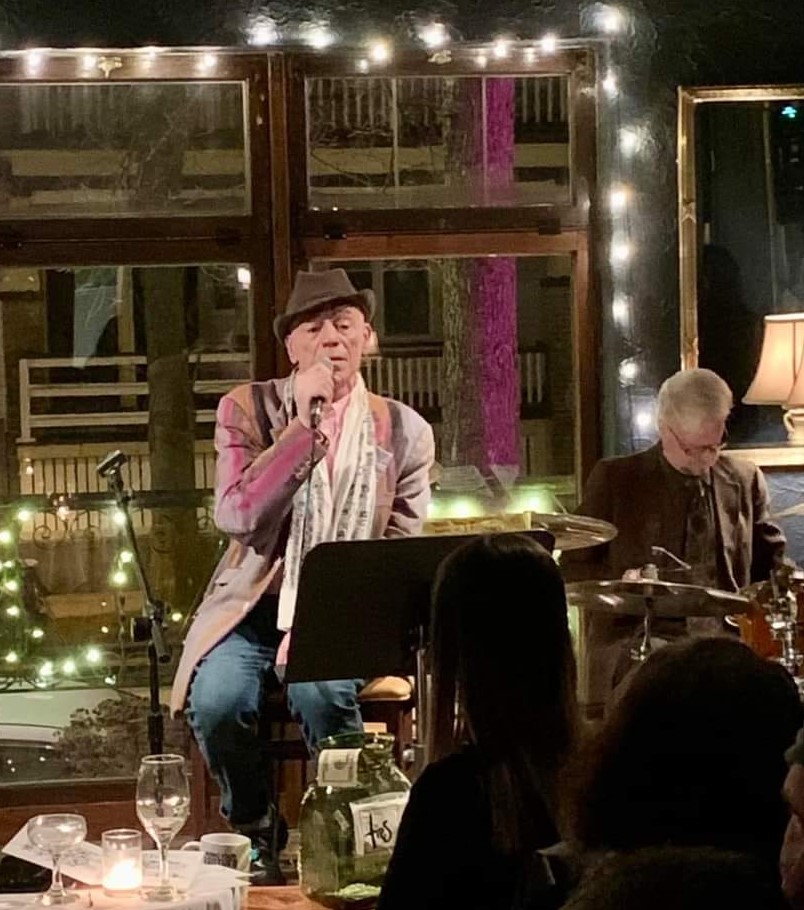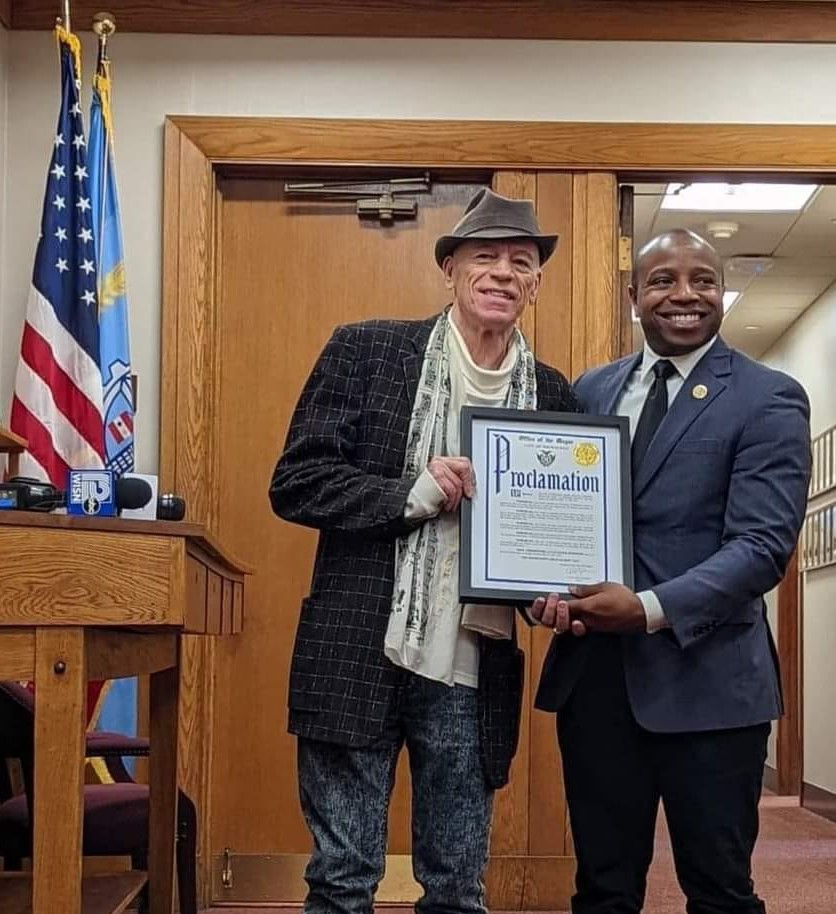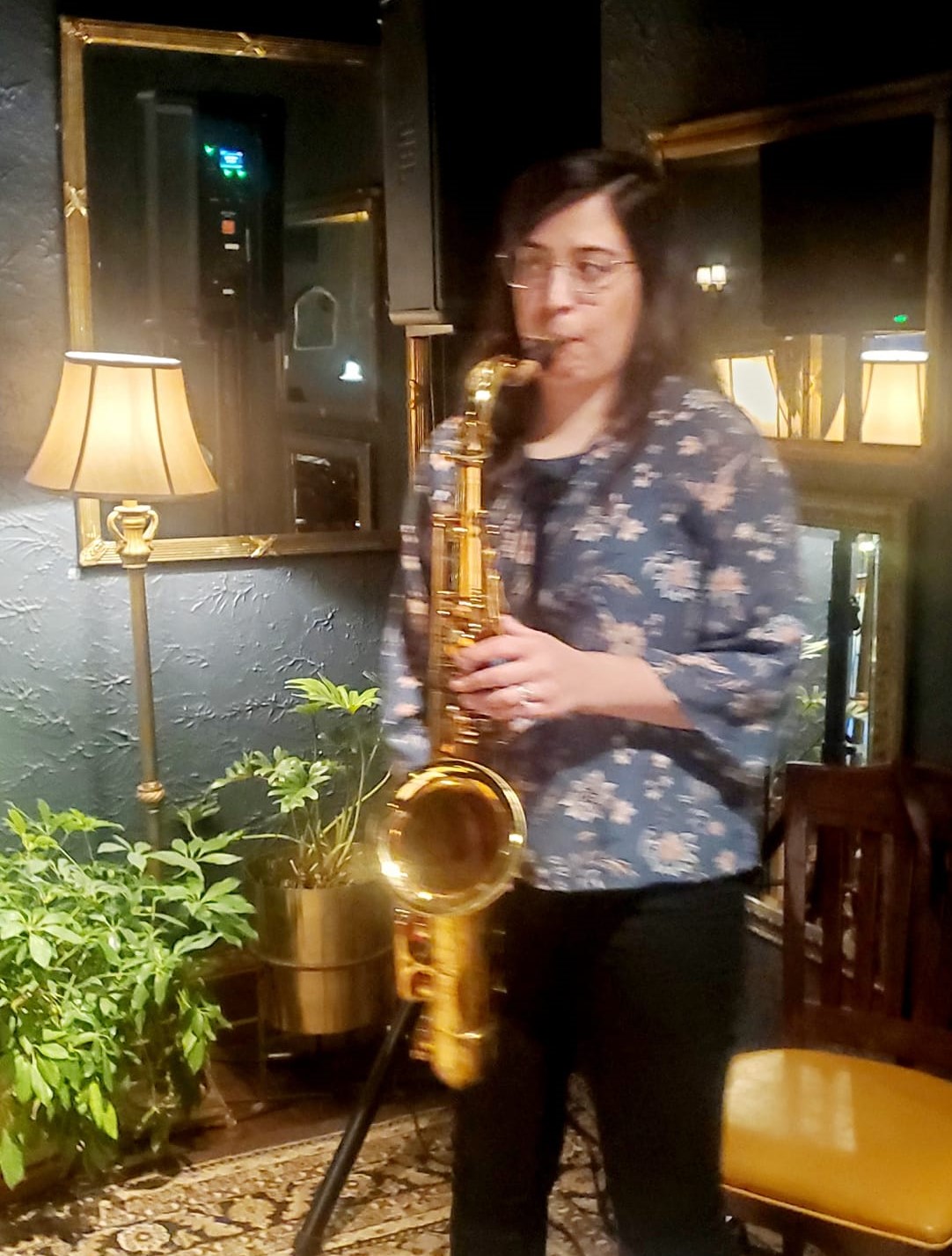“And the Good Samaritan, he’s dressing, he’s getting ready for the showHe’s going to the carnival tonight on Desolation Row.” — Bob Dylan, “Desolation Row”
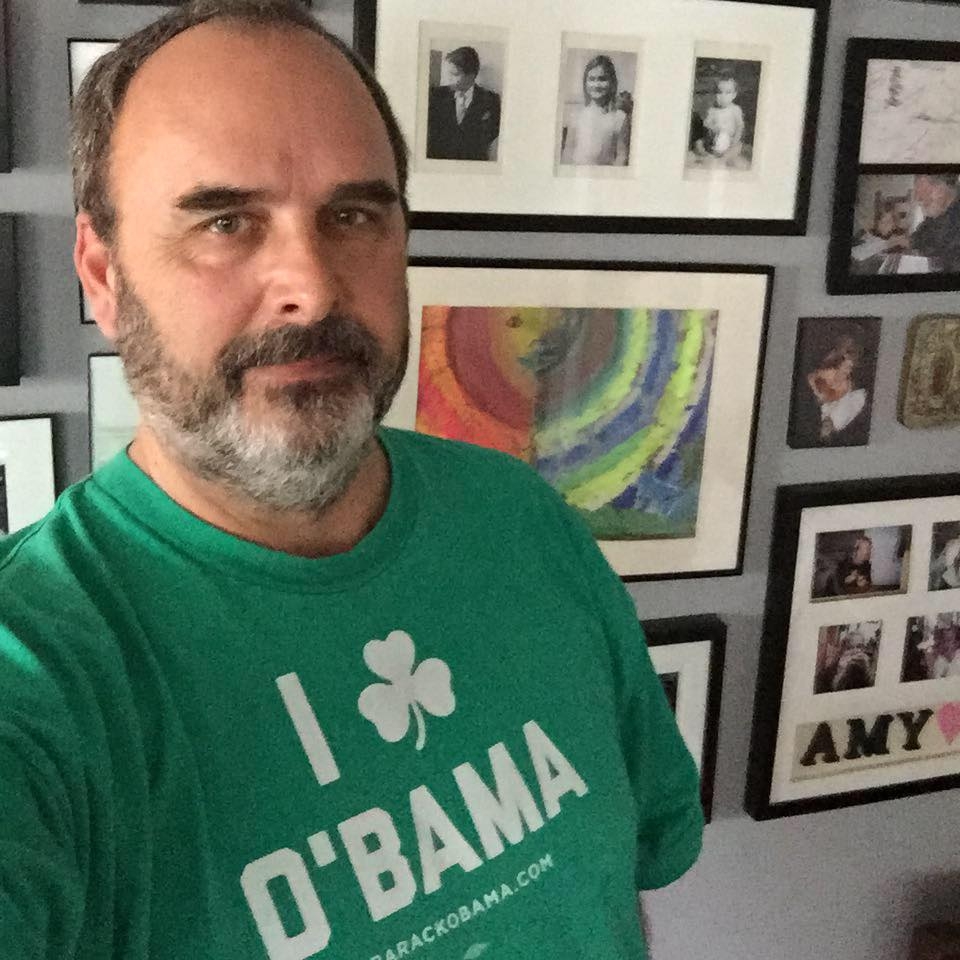
Tim Arndt (1959-2024). All photos of Tim courtesy of Tim and Amy Arndt.
As I’m going in a sleepless gonzo-mode lately, I might not do justice to Cousin Tim Arndt or to spouse Amy Arndt’s power-packed obit of the extraordinary man who died of prostate cancer recently, at 64. It’s a revelation, the depth and myriad benevolence of Tim’s life. So, I hope this doesn’t seem too irreverent, as this is not an obit per se, and the ensuing analogy is meant to serve by contrast.
But as a culture vulture, I was struck by something in the sadness of Tim’s passing. In my house, we’re currently on a Better Call Saul-watching binge. Here’s the mirror reflection that caught my eye. It strikes me Tim’s life is the moral mirror-opposite of the title character. Tim started his professional career selling flip-style cellphones — close to the depicted the era when Jimmy “Saul Goodman” McGill starts re-inventing himself — selling “private” covert flip-style cell phones. And the TV series’ New Mexico setting ain’t far from Texas, so the cultural milieu isn’t too alien.
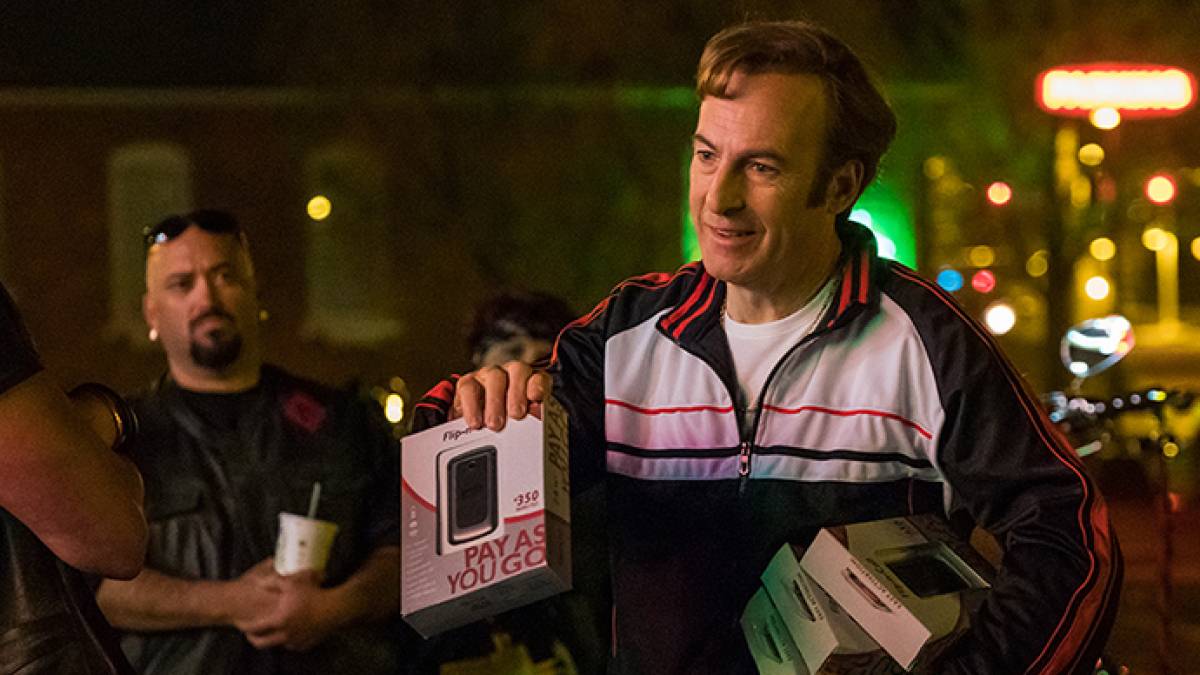
Jimmy McGill hustling private flip-style cell phones. The Georgia Straight
The big difference is how disgraced and disbarred lawyer Jimmy/Saul takes to selling cell-phones, for nefarious purposes. He has a born-salesman’s gift-for-gab, like Tim, but oh my, what Saul does with his gifts. Throughout the series he’s a salesman first and best, even when working as a lawyer.
What unfolds is a contemporary variation on the tragic American story of moral dissembling, through desperation, gravitating to the lure of free-market greed. He begins (with a lovely and upstanding blonde woman partner, like Tim), and he could’ve done so much good, and he knows it. We see this all grow like a cancer in him because Bob Odenkirk is a superb actor who reveals many shades of his character’s two-facedness. As Saul, he ends up exploiting his customers (initially retirees), and the system, as much as he can, eventually falling into the deadly cesspool of a Mexican drug cartel. He can’t help himself, his brilliant lawyer brother Chuck explains, dating from childhood, and consciously if compulsively continues to avoid the better angels of his nature.
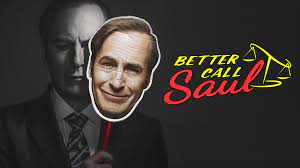
Promotional image. Amazon.com
Activist Tim Arndt, by contrast, used the medium of Ma Bell for the sake of Mother Earth, as a springboard to profoundly protect and replenish the planet as a “climate change warrior,” and to help anyone who needed help. It seems that, like Saul, Tim couldn’t help himself, but to “do the right thing.” I shouldn’t make him out to be a saint but he seemed to be one of an empowering sort who “saw the potential in everyone and everything,” as his brother Steve commented. Saul sees the potential weakness in everyone.
Widow Amy also notes that Tim would stop to help anyone with car trouble. Jimmy McGill’s beat-up 1998 Suzuki Esteem – rusted-out yellow with one red car door, would’ve needed Tim’s help. In fact, Jimmy is in an accident in the series pilot when two skateboarders try to scam him by purposely running into Jimmy’s car. Jimmy’s nearly broke at the time (working at a Cinnabon shop) and the punks-on-little-wheels demand $500 compensation for the “accident.” Jimmy points to his car as “a steaming pile of crap” to show how hard-up he is and says, “The only way this car is worth $500 is if there’s a $300 hooker in it!”
If Tim Arndt had been cast in the show at that point, Jimmy might’ve seen the erring of his ways, though probably continuing down his slippery slope. That ethical task is up to Jimmy’s girlfriend, the sharp-lawyer Kim Wexler (Rhea Seehorn), who loves her pro bono work, in an almost morally preening way. She loves Jimmy, too, as his sounding board yet is strangely vulnerable to his “aw shucks” charms and deceptive bloviations. It’s a variation on a Macbethian love story, with the man as the infecting partner.
As Amy’s obit recounts in admiring detail, Tim Arndt was “The Ultimate Good Samaritan.” Jimmy’s version of “Goodman” Samaritan is to teach the young skateboarders how to scam better.
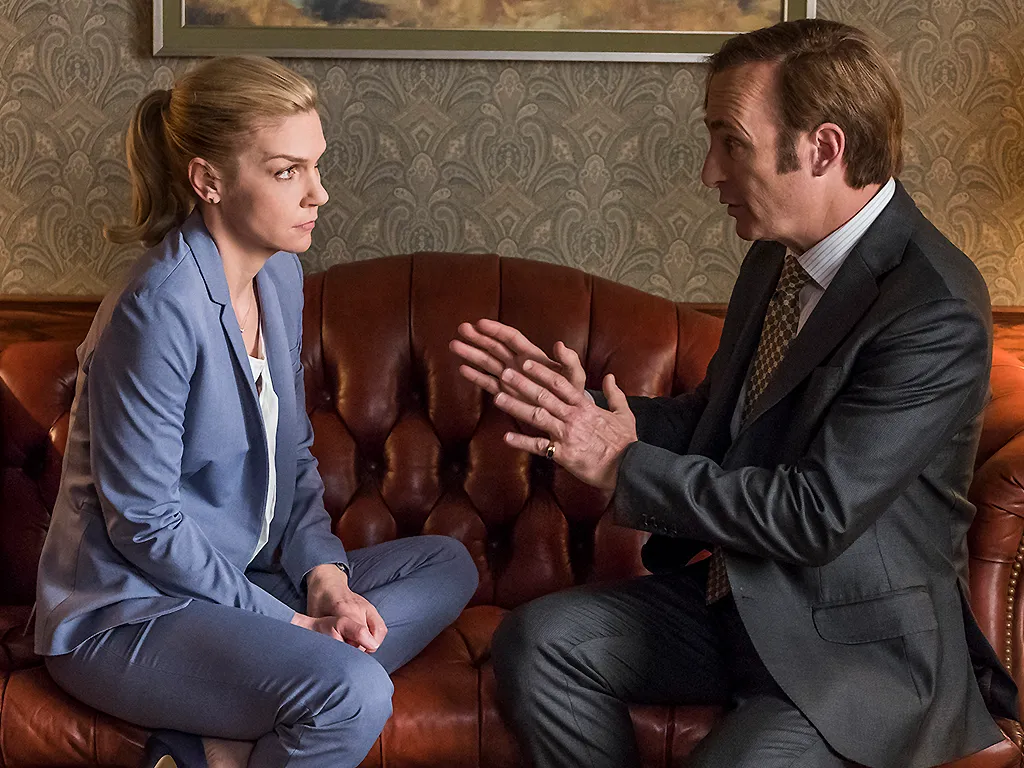
Girlfriend Kim Wexler (Reah Seehorn) listens to another explanation/vow from Jimmy McGill/Saul Goodman (Bob Odenkirk). Although high-minded, she has a weakness for his powers of persuasion and evasion. global.ca/news
Over time it became known that Tim had helped everyone in the neighborhood. If Tim could have been satirized at all, it might’ve been as a too-good-to-be-true do-gooder and tree-hugger, who might rankle some, but only as if we don’t need more of those in America. His tendency to be a found-objects “hoarder” might seem comical too, but all his gatherings were stashed in his garage (nicknamed “Vietnam” because of its devastated-looking chaos) which, with his special brand of genius, became a myriadic fix-it and repurpose shop for anyone who needed the once-again right stuff.
Among the more remarkable things Tim did was “returning BB King’s famous guitar Lucille to its rightful owner when it ended up in his possession,” as Amy recounts. (Please read Amy’s obit on Tim following this article — originally posted on her Facebook page — on more of what made him an extraordinary man.)
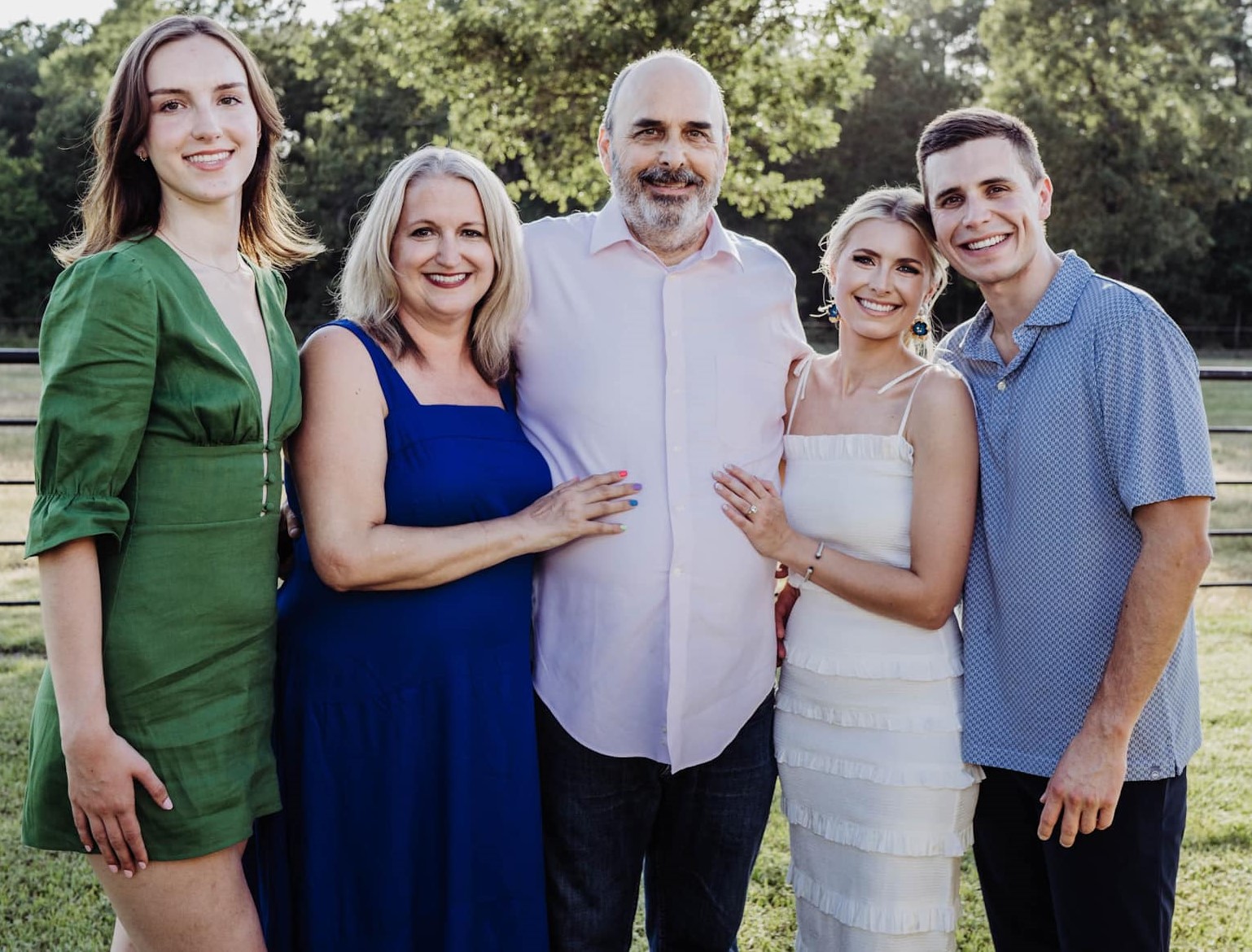
Tim Arndt, proud family man with (L-R) daughter Emily, spouse Amy, Tim, daughter-in-law Taylor, son Matthew.
Tim Arndt and Jimmy McGill embodied two versions of a quintessential American. Tim might have come as close as anyone with limited resources to being the ideal American, living to pursue justice, equality, and a measure of happiness for his own (the proud father of three) and anyone, and to help save the only planet we have to survive on. Though I didn’t know him well (he was a life-long Texan, I a Wisconsinite), Tim now feels like the brother I never had. In our shared Lynch genes, we even resemble each other. But he was probably a better man than me, than most.
Jimmy the Saul-man, with his own peculiar resourcefulness, was the every-man-for-himself American, the transactional con-man first brilliantly characterized in Melville’s The Confidence Man: His Masquerade from 1857), and agonizingly relevant today. Jimmy/Saul was a winning glad-hander, even capable of a flawed love, ever despoiled by the neediness of his greediness.
As for the way Tim loved, as Amy sweetly notes: “Tim was born in Dallas, Texas on Valentine’s Day in 1959. His mother Eileen almost named him Val, but thankfully, she chose Timothy James instead. Still, being born on Valentine’s Day meant Tim Arndt was born to exemplify love.”
May the Tim Arndts of the world inspire us, and may we be ever vigilant of the Saul Goodmans.
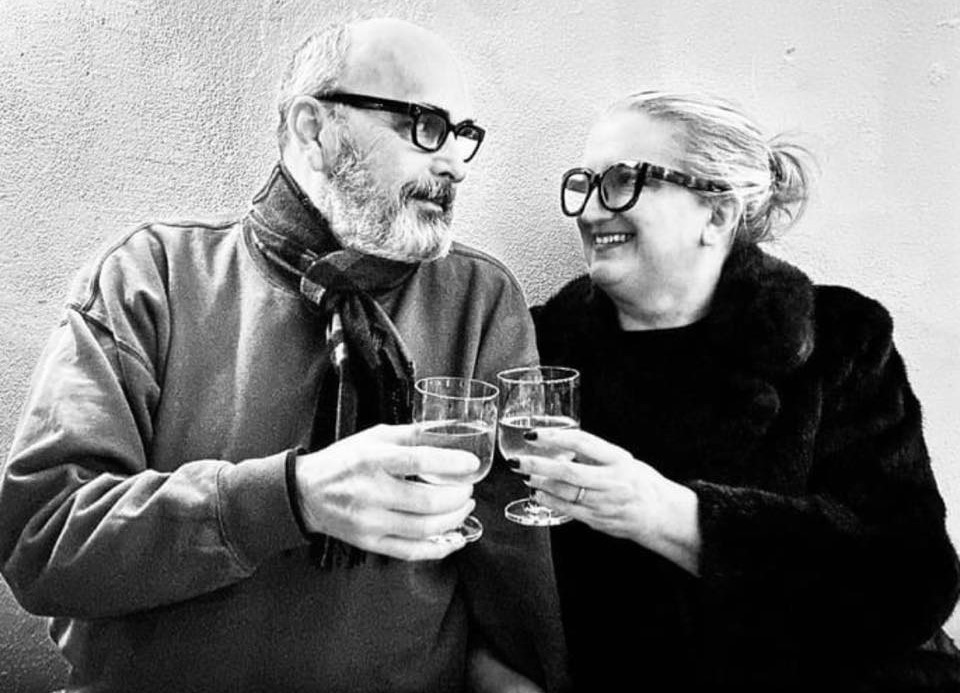
Tim and Amy.
_________
*Saul (Bob Odenkirk) may still be better known as the sleazy lawyer on Breaking Bad. Better Call Saul was a sort of prequel, telling the story of how Jimmy McGill came to be Saul Goodman. Odenkirk (only three years younger than dear Tim) has received six nominations for Primetime Emmy Award for Outstanding Actor in a Drama Series, marking his comic-tragic brilliance at embodying the conflicted yet chillingly mutating character.
_______________________

You, Sheila A. Lynch and 315 others


